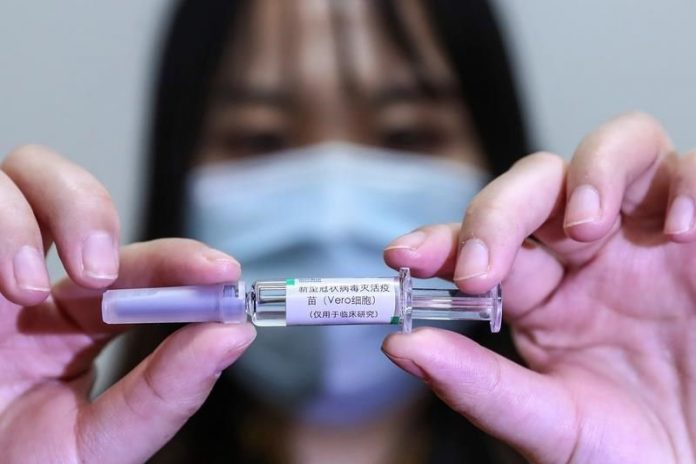
Canada, Britain and the United States denounced Russian hackers on Thursday for trying to steal research on COVID-19 vaccines from organizations in all three countries and around the world.
Thursday’s joint declaration, led by Britain, said the hackers were almost certainly working for Russian intelligence and accused them of disrupting the global efforts to find a vaccine for the novel coronavirus.
The revelation pulled back the veil on the ongoing collaboration between scientists and spies to guard against threats to the development of a vaccine to end a global pandemic that has infected 10 million people and killed 500,000.
Canada’s Communications Security Establishment said the malicious cyberactivities were very likely undertaken to pilfer information and intellectual property relating to the development and testing of vaccines.
Public Safety Minister Bill Blair said it isn’t just Russia that poses a threat, and that the CSE and the Canadian Security Intelligence Service are committed to protecting Canadian researchers from all international enemies.
Blair said it was “not just the Russians targeting it but other foreign actors as well.”
The CSE and its British and American partners said the activity is hindering response efforts when health-care experts and medical researchers need every available resource to help fight the pandemic.
The assessment was supported by Britain’s Government Communications Headquarters’ National Cyber Security Centre, the U.S. National Security Agency, and the Department of Homeland Security’s Cybersecurity and Infrastructure Security Agency.
The Canadian government would not say what if any diplomatic action had been taken against Russia.
Nor did the joint assessment specifically say whether the hackers had been successful, but Canadian vaccine-makers were following the advice of the intelligence agencies and taking precautions.
The CSE’s Centre for Cyber Security assessed that a group labelled APT29, also known as “the Dukes” or “Cozy Bear,” was responsible, and almost certainly operates as part of Russian intelligence services.
Washington has previously identified “Cozy Bear” as one of two Russian government-linked hacking groups that broke into the Democratic National Committee computer network and stole emails ahead of the 2016 presidential election.
“The group uses a variety of tools and techniques to predominantly target governmental, diplomatic, think-tank, health-care and energy targets for intelligence gain,” said the joint advisory from the CSE and its allies.
“APT29 is likely to continue to target organizations involved in COVID-19 vaccine research and development, as they seek to answer additional intelligence questions relating to the pandemic.”
David Reed, Britain’s deputy high commissioner to Canada, said any discussion of whether the Russians succeeded in stealing anything had to remain an operational secret.
He added in an interview: “There’s no evidence this is going to cause a delay to the discovery of a vaccine, but it’s clearly reckless behaviour.”
Russian President Vladimir Putin’s spokesman, Dmitry Peskov, rejected the accusations.
“We don’t have information about who may have hacked pharmaceutical companies and research centres in Britain,” Peskov said, according to the state news agency Tass.
“We may say one thing: Russia has nothing to do with those attempts.”
Reed flatly rejected the Russian denial.
“We have the highest degree of confidence that this action by APT29 is linked to the Russian intelligence service. It’s a despicable attack against those doing vital work to combat the coronavirus pandemic,” he said.
“We’ve called the Russians to account previously, and this is another example of that.”
Britain’s relations with Russia plummeted after former Russian spy Sergei Skripal and his daughter were poisoned with a Soviet-made nerve agent in the English city of Salisbury in 2018. Britain blamed Moscow for the attack, which triggered a round of retaliatory diplomatic expulsions.
Canada expelled several Russian diplomats as part of the West’s co-ordinated response to the Salisbury poisoning.































